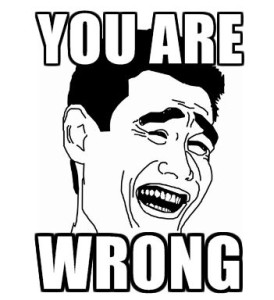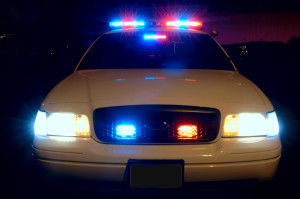Security Officers Impersonating Police Officers
Jul
01
2015

Quite frequently, there seems to be some report of a security guard being accused or even arrested for impersonating a police officer. This is a very hot topic and sore spot with all law enforcement officers and some guard companies.
Law makers are becoming involved and looking at introducing bills to address this, as they feel the private security industry is not properly policing themselves or their organizations, to include the guard companies are the ones allowing and providing the equipment to their guards.
There is nothing wrong with guards looking professional in uniforms and vehicles, but clearly there are some security companies that seem to have intentionally designed their uniforms, patches, badges, and equip their vehicles so as to purposely mislead the general public or fulfill some fantasy of “playing cop,” which is an issue. You can be a professional security officer and provide a great service to clients without crossing lines.
Private Security Cars Mimicking Cop Cars
Blue & Red Lights: Who is pulling you over?
As the security industry continues to boom, guard companies are able to afford new high-tech vehicles which closely resemble law enforcement vehicles.
Although there is nothing wrong with purchasing ex-cop cars (or similar), the problem is that many times these vehicles are equipped by the guard companies and/or guards with emergency equipment such as: Red and Blue flashing lights, sirens, air horns, cages, push-bars, and stealth graphics – all done to fool or confuse the general public and give the illusion the security officers have more power than the average guard because they have red or blue lights… This is Incorrect!
When you couple the equipment, uniforms and vehicles with the fact that many guards are under-trained and not vetted well at most companies, often lines are crossed into committing the crime of “Impersonation of a Public Servant,” which is a Felony in the state of Texas.
Some companies may not know their guards are crossing the line, but then why provide vehicles and certain equipment to them?
Since posting this blog a few years ago, we’ve received a lot of positive responses from many law enforcement agencies; however, we also received negative responses from a couple of security guard companies (of course, from the ones with red or blue lights “playing cop”), and thought our post was incorrect or pointed a negative spotlight on them.
Sadly, one such response we received was a two-page rant from an “Instructor” at a different training academy in Austin who also provides a security guard and patrol service; his company uses blue lights and conducts traffic stops.
We have provided his argument points in this blog as it is the same ones augured by many that do this, and operate under a misunderstanding or misuse of the law, which they either create or avoid to acknowledge all aspects of while conducting their “traffic stops” as a security guard.
Some of these guards, companies, or rogue Instructors have actually taken their time to research and pick and choose a traffic code here or penal code there – parts of one section or another to construct or justify some type of permission or authority they are seeking to allow them to do this.
While they find one section or two that does not prohibit the use of the lights on private property specifically, they completely ignore the entire Penal Code section(s) which points out possible criminal violations that they could be committing. Some fail to realize they cannot pick and choose which code they’re willing to follow and which code they’re willing to ignore; the law doesn’t work that way.
Proper training from experienced and knowledgeable Instructors will keep you and your company out of trouble.
Security patrol vehicles that look like police cars
Question to Guard Companies: Why do you want to give the general public the impression you are law enforcement or something other than security?
It should be very clear who you are and what your authority is or isn’t to the general public at all times, without having to closely study your uniform, patches or vehicle from six inches away.
Stated position of DPS-RSD as found on their website: DPS-RSD (the regulating authority for private security) lists this topic (flashing Red/Blue lights) on their private security site as a FAQ or issue and their response is to cite a section of the Texas Vehicle Code as it pertains to prohibited equipment and or use, which is true on public roads and highways. Obviously, if DPS-RSD placed this on their site, they wish to discourage the use of the equipment right?
Argument from the security companies: The security companies and their guards acknowledge what DPS-RSD has posted on their site, however, they all point out that it is a “Texas Vehicle Code” violation (aka Transportation code), and as such, the vehicle code (99%) does not apply to anyone on private property – which is true.
Therefore, they ignore what DPS-RSD puts out stating “as long as we stay on private property when our emergency equipment is activated on our patrol cars the law can’t touch us.”
Special point: Some of these guards, companies, and rogue Instructors have done extensive research and can even provide several transportation or similar codes which talks about red lights, blue lights, whether the red lights are facing forward, facing backwards, whether the vehicle is moving or not moving, etc… all in an effort to war game the codes and laws to benefit them. 
There is no dispute, you can have a fully functional red & blue light bar and emergency equipment activated on private property (although highly discouraged), and not be in violation of the transportation code, but it is not the point of this article which talks about “impersonation” and traffic stops.
Shared point by many Law Enforcement Officers:
Law enforcement has a major legitimate point which is the public should not be confused as to who is pulling them over with red/blue lights at any time (private property or public roadway). Secondly, private security guards are not trained enough nor can handle pulling over a driver who turns out to be a violent criminal offender.
Many Law enforcement officers are killed yearly conducting traffic stops; keep in mind, they are also highly trained with a lot of technology at their fingertips. Most security guards do not have the ability to run license plates in real-time, run driver’s licenses, (so they have no idea what they’re up against), and they’re not actively monitoring any type of ongoing crime issues in the area, to include they do not attend a 6 to 9 month academy which goes over traffic stops, vehicle approaches, etc.
In the eyes of actual law enforcement, security guards (a.k.a. private citizens ), have no business conducting traffic stops, pulling vehicles over, detaining, delaying, or interfering in anyone’s freedom of movement unless they’re making a “citizen’s arrest,” which is generally not the case.
The last thing anyone wants is to have the public start to doubt, hesitate, or not trust law enforcement because of a prior bad experience with some security guard and his red/blue lights conducting a traffic stop with citizens assuming that security guard was a police officer while being stopped.
Points from a few guards, companies, and rogue security Instructors:
The two-page rant we received from a security Instructor that works for our competition (as mentioned prior), provided the following points; we are sharing his argument as a learning tool, as they are shared by many like-minded individuals whom harm the security industry more than help it, by setting brand new officers up for failure. 
In the letter, the rogue Instructor felt security officers could conduct traffic stops because they were on “private property; on a controlled access area; they had the owner’s permission; they were enforcing trespassing.” The Instructor also felt that he and the security staff were exempt from criminal charges because they were on “private property” and also indicated impersonation “had to be by threat, to include use of a badge, citations, ID, etc.”
He then continued on and addressed construction crews on the highway using blue lights; he felt that meant guards could also utilize blue lights and conduct traffic stops without penalty. He quoted transportation codes and sections about lighting, but avoided stated sections contained in the Texas Penal Code.
He also said his company is offering a “private police service” (again his words), all of which is ridiculous and was disappointing that it came from a security Instructor at a well-known security company in Austin and Houston.
Just like there is a big difference in security companies, there is a big difference in Security Instructors.
#1: No guard company can run a “private police service,” even if you have a few “active cops” working for your company, you must be recognized as a police department by the state such as a University Police Department – which will NEVER happen to a guard company.
Additionally, an off-duty police officer driving a security vehicle working in the capacity of a security officer does not make that security vehicle a “Police Vehicle” or that you are providing “Police Service.”
#2: His point of being exempt from any crimes because he is on private property, in a gated community or in a controlled access area or that the client or company provided permission to conduct traffic stops, simply does not hold water either.
Crimes are committed on private property every day and in gated communities; yes, the police can respond on calls and make arrests on private property and do so all the time. Private Property does not render you exempt from criminal charges unless you have diplomatic immunity. Additionally, no client or company can authorize you to break a law at any time.
#3: His point that he sees construction crews on the highway with yellow and blue lights flashing – he attempted to use as an excuse to authorize him and his guard company to use them and conduct traffic stops.
Impersonation of a Peace officer
One, separate the discussion of the lights themselves with conducting traffic stops; something he had a tough time comprehending. To restate, guard companies can have these lights on their vehicles and activate them on private property with no issues, but it is the traffic stop that we’re focusing on here.
As far as construction crews with yellow and blue lights, that is a TX-DOT contract requirement; they fall under TX-DOT (the state) when they operate on the freeway /highway. Not only are they authorized to do this but the construction crews are not conducting traffic stops and pulling citizens over – big difference and not a true “apples to apples comparison” that the Instructor attempted and failed.
#4: His comment that he “enforces Trespassing and conducts traffic stops” – Okay, so without going into a trespassing class here… If you stop (conduct a traffic stop) a suspected trespasser inside your property and the person turns out not to be committing a crime and you are not making a citizen’s arrest, then how do you get around the fact that you just unlawfully detained them with that stop?
If you know the law, you will also know that under TPC 20.02, handcuffs are not required to satisfy the definition of restrain (which also references TPC 20.01); so you may just walk yourself right into a charge of “Unlawful Restraint” (aka unlawful detainment or false arrest).
OCC 14.01 says you can only make an arrest if the crime is committed in front of your presence; so if no crime was committed and the person you just stopped is not trespassing, are you not out of bounds here? Yes, you are!
#5: His comment that Impersonation of a Public Servant “must include police ID, ticket booklet, or some type of threat” is wrong as well. Here is what the law says and it is cut and dry.
Texas State Law Penal Code Sec. 37.11. IMPERSONATING PUBLIC SERVANT:
(a) A person commits an offense if he:
(1) Impersonates a public servant with intent to induce another to submit to his pretended official authority or to rely on his pretended official acts; or
(2) Knowingly purports to exercise ANY function of a public servant or of a public office, including that of a judge and court, and the position or office through which he purports to exercise a function of a public servant or public office has no lawful existence under the constitution or laws of this state or of the United States.
(b) An offense under this section is a felony of the third degree.
TCTA’s breakdown: With TPC 37.11, that code does not require you to say “I’m a peace officer” to be charged with this crime; it also does not require you to be in a police uniform, have a police badge, or have a citation book or have “Police” on your car to be charged with this, although those items would provide icing on the cake – they not required.
This law is broad and leaves lots of room to find you in violation of it. It is ANY function normally done by a public servant with the intent to induce another to submit to your pretended authority of a peace officer.
A traffic stop is a prime example of this, so be very careful if this is you; even on private property, it won’t matter. Blue & red lights only adds fuel to the allegation by a motorist or police officer after a complaint is received.
Intent: can be shown when you or your company bought and installed those red & blue lights coupled with the fact you turned them on (activated them). You’re using the colors you know emergency vehicles use in this state when other colors (such as yellow or white) are available.
Induce: you want them (citizens) to pull over (or yield) to you and your vehicle which you know the average citizen after seeing those red or blue lights flashing will pull over as they believe you are some type of emergency vehicle.
Pretended authority: Key point here is how the driver (complainant) felt and what they believed you were at the time of you pulling them over (not after you ID yourself, but when you were pulling them over from behind, coupled with the fact you used “emergency equipment” to do so).
You have to ask yourself what type of agency drives around with red/blue lights, a siren and makes traffic stops? Only law enforcement does, so it is safe to say out of 100 people, all 100 will agree they thought you were the cops pulling them over, and that’s all it takes to file a report on you – again, using those lights adds fuel to their claim (private property or public road way).
Since it is a felony, you can 100% count on the fact that law enforcement will investigate and maybe even conduct undercover stings on your company – it has been done before.
Keep in mind, the traffic stop is your action to get them to submit (stop/yield & pull over); you’re also delaying/detaining them with your traffic stop, which is another issue.
Closing points: Let’s be clear here: YES, you can drive around on your client’s property (private property) with flashing blue and red lights (although highly discouraged), as a “high visibility patrol technique.” And you can have consensual conversations with people and ask them questions and advise them of your property’s rules, etc.
But we are talking about actually pulling over vehicles, stopping citizens, making traffic stops, running radar, and chasing people down on your property, blocking people in and delaying them, detaining them, with the use of your patrol car and that equipment as a tool.
For the most part, looking at the current codes for private security, they are either lacking, vague, nonexistent, or outdated, which some companies take advantage of and push the limits. Quite frankly, why are the guards and companies so determined to have red and blue lights on their vehicles when yellow and white is just fine. We are “security;” we are not law enforcement and there should be a clear division between the two from any private citizen’s standpoint.
Even as a trained professional in the industry, I have a difficult time identifying security or police with some of these guard companies (uniforms and vehicles) it’s getting a little out of control to say the least with guards wearing SWAT uniforms and jumping out of unmarked police style cars with patches and badges you can barely see or are misleading – some do their best to hide the word “security,” which makes it more confusing.
When you couple an “unmarked” police style car with red and blue lights which is how a lot of the companies roll, you really fool the general public and this should be unacceptable. Remember it is not the color of the lights you have on your security car that gains you the respect or the compliance you seek, it is the officers you have working for you and their training.
Regardless if you mark your vehicles or not and regardless what color of flashing lights or equipment you place on your patrol cars, security officers cannot run a “private police service” and cannot legally make traffic stops (period).
Contact TCTA for more information about guards impersonating police officers.
Posted in Laws & Regulations Tagged with: can guards make traffic stops?, Police impersonation, security flashing lights, Security making traffic stops, security training
